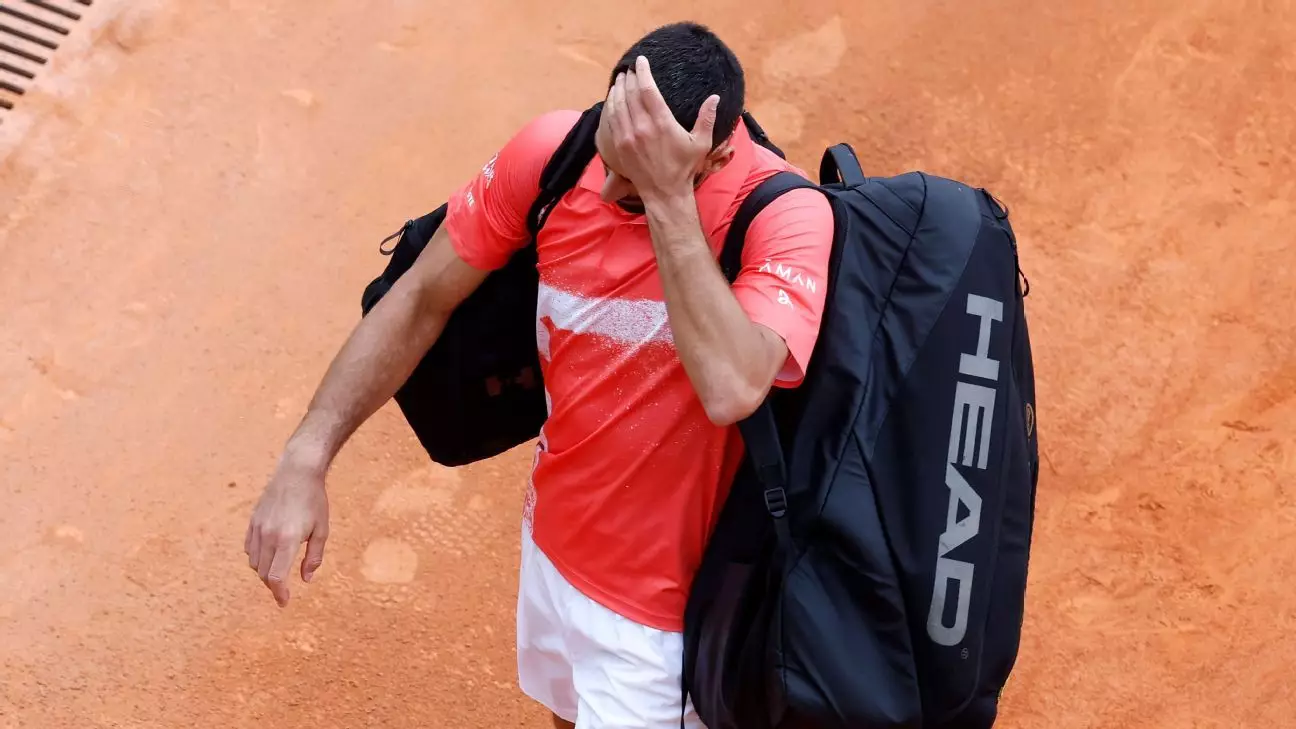In a stunning upset that showcased the unpredictable nature of competitive tennis, Alejandro Tabilo defeated the legendary Novak Djokovic in the second round of the Monte Carlo Masters, winning 6-3, 6-4. Tabilo, a 27-year-old Chilean player, has now handed Djokovic his second defeat in as many encounters, solidifying his unique place in tennis history. This match was not merely a victory for Tabilo; it encapsulated the volatility of the sport, where even the greatest champions can fall prey to rising talents. His admission that nerves played a role speaks volumes about the pressure of the stage, but it was Tabilo’s exceptional serving that truly set him apart this time.
This victory serves as a reminder that the sport is always evolving, with new players continually emerging from the shadows of established greats. Tabilo, who reflected on his previous encounter with Djokovic to guide his performance, effectively demonstrated the significance of mental preparation in sports. His assertion that today’s match felt “unreal” underscores the elation that often accompanies unexpected success. The ability to seize momentary opportunities in such critical matches is often what distinguishes promising players from seasoned champions.
Djokovic’s Uncharacteristic Missteps
For Djokovic, this defeat marks another chapter in a year that has proven to be tumultuous. The 24-time Grand Slam champion expressed dissatisfaction with his performance post-match, lamenting 29 unforced errors—a statistic that starkly contrasts with his meticulous style and seasoned pedigree. Djokovic’s self-critique reveals the burden of expectations he places upon himself as he approaches the age of 38. His candidness about his performance being “horrible” is a refreshing glimpse into the psyche of a player grappling with the weight of high expectations from both himself and his fans.
His comparison of the match to a lackluster performance foreshadows a potential struggle as he navigates a pivotal year in his career. While Djokovic previously maintained the aura of invincibility, this match stripped away some veneer, presenting a more human side of a player who has dominated the sport for nearly two decades. The psychological aspect of maintaining a competitive edge cannot be overstated; it is fundamental to a player’s success, especially when resilience is tested.
The Pressures of Time and Competition
As Djokovic inches closer to a significant milestone—aiming for his 100th career title—the pressure intensifies. The possibility of solidifying his legacy with a Monte Carlo title, which would have made him the first to win every Masters event at least three times, now seems more distant. This narrative transforms his upcoming matches from opportunities for triumph into a quest for redemption. The lingering taste of disappointment can transform the landscape of a player’s mind, creating both a drive to succeed and a fear of repeating past failures.
Amidst these tensions, other players like Carlos Alcaraz are seizing opportunities. The defending French Open champion showcased resilience by recovering from a set down to win decisively in his second-round match. This dynamic inversion of fortunes illustrates how young contenders are adeptly stepping into the spotlight, ready to challenge established feats and records. For Djokovic, navigating this ever-changing landscape while continuing to seek excellence becomes an increasingly complex endeavor.
Legacies Tested in the Monte Carlo Arena
The Monte Carlo Masters has always been significant within the broader context of the ATP Tour as the curtain-raiser to the clay season. For veterans like Djokovic, who is simultaneously facing innovative talent and the realities of age, this tournament serves as both a testing ground and a living history lesson. The emergence of players like Tabilo and Alcaraz not only presents fresh challenges but also incites a sense of competition that fuels the narrative of tennis.
With other seasoned players such as Lorenzo Musetti and Casper Ruud showcasing their potential in the tournament, the elder statesman of the sport might find himself in a delicate position—one that requires adaptation and perhaps a reevaluation of strategies. Tennis, after all, is as much about psychological endurance as it is about physical prowess, and Djokovic, despite his accolades, may find that the winds of change are relentless in their pursuit. The following months will be crucial in determining not just how he adapts to the new generation of players, but also how he continues to reshape his illustrious legacy.


Leave a Reply